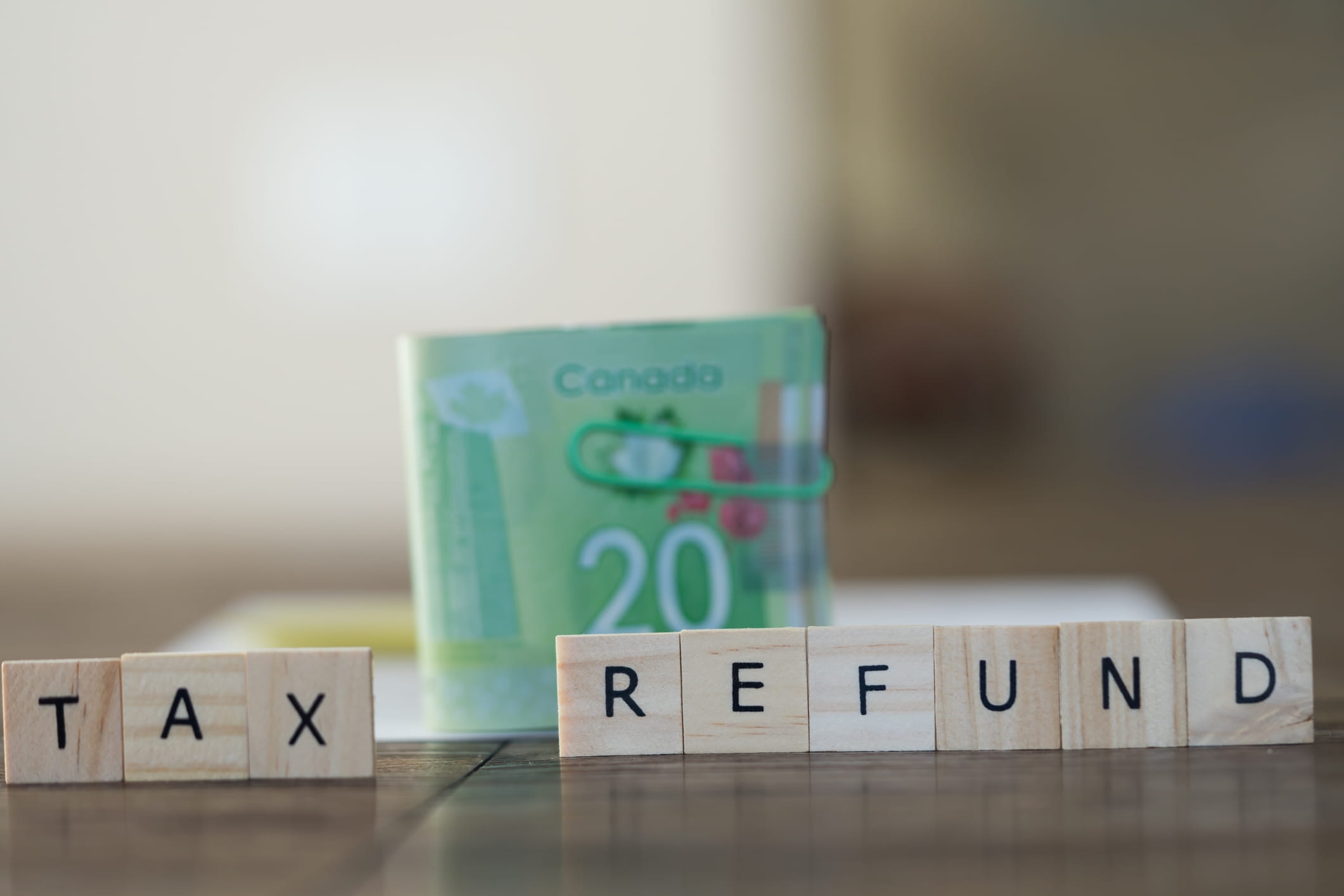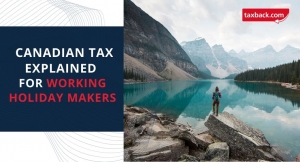What to do Right Now to be Ready for the Canadian Tax Deadline
The Canadian tax deadline is the 30th of April and to help guide you through tax season, we've put together our top tips to ensure you're prepared for the tax deadline.
1. Start early
For starters, if you’re owed a tax refund in Canada, the sooner you file, the sooner you’ll get your refund in your pocket.
Plus filing early helps you avoid the deadline rush and stress. The CRA (Canada Revenue Agency) is currently processing tax returns. So why wait until the Canadian tax deadline to file?
The average Canadian tax refund is $998
2. Determine your residency status
In order to file a compliant tax return, you must first determine your Canadian tax residency status.
In short, you are a non-resident in Canada for tax filing purposes if:
- you stayed less than 183 days in Canada during the tax year or you are living temporarily in Canada
- you don’t have significant residential ties in Canada or have stronger residential ties in another country
- you live in another country and you are not considered a resident of Canada
Most working holidaymakers in Canada are typically considered non-residents for tax filing purposes.
What are significant ties in Canada?
-
A spouse or common-law partner
-
A house or apartment (own or renting)
-
Dependants
If you worked in Canada you should have received your T4 slip by the end of February.
If you worked for multiple employers you will have more than one T4 slip.
If you have investment income or interest your investment broker or your bank should provide you with T3 or T5 slips and in case you received other types of income from Canada such as scholarships, fees or commissions the payer should issue a T4A slip for you.
If you have lost your payment documents from Canada or never received them Taxback can help you trace them before the Canadian tax deadline.
The average Canadian tax refund is $998
3. Gather your income documents
In order to file your tax return you will need:
Your income documents
If you worked in Canada you should have received your T4 slip by the end of February.
In case you worked for multiple employers you will have more than one T4 slip.
If you have investment income, your investment broker or your bank should provide you with T3 or T5 slips. Similarily, if you received other types of income from Canada such as scholarships, fees or commissions, the payer should issue a T4A slip for you.
However, If you have lost your payment documents from Canada or never received them Taxback can help you trace them.
Your Social Insurance Number (SIN)
Your Canadian SIN is a 9-digit number that allows you to be employed legally in Canada. You should have a SIN before starting your employment and you can obtain it from Service Canada.
However, it's possible that you received income other than employment from Canada and you do not have a SIN.
If you have never applied for a SIN and you received income from Canada you can apply for an Individual Tax Number (ITN) after you left Canada.
In order to file your tax return and obtain an ITN, you need to fill out Form T1261, which is the Application for a Canada Revenue Agency Individual Tax Number (ITN) for Non-Residents.
Taxback can help you with your ITN application, just register here.

4. Keep records of any expenses you intend to claim
Living in Canada can be expensive, luckily the tax office allows some expenses to be used as a deduction for your taxes.
This may include work-related expenses, medical costs, tuition fees or interest paid on a student loan.
In order to claim work-related expenses in Canada, you need a form T2200 signed by your employer and documents proving your work expenses such as invoices, receipts, employment contract, a list with itemized tools, rental contract and bank statements.
Medical expenses can be claimed for medical exams, medications and prescribed therapy. In order to claim them, you need valid receipts.
Valid receipts should include:
- the purpose of the payment,
- the date of the payment,
- information about the patient for whom the payment was made and,
- if applicable, information about the person who prescribed the purchase or provided the service.
The average Canadian tax refund is $998
You have to keep the documents for expenses you claimed on your income tax return for 6 years after you filed the tax return as the tax office may request to see them.
If you do not provide the required documents you will have to return the overpaid refund with interest.
5. Let someone else do it for you!
Who wants to spend time thinking about tax filing when you could be enjoying your working holiday in Canada instead?
Here are three reasons you should let Taxback handle your Canadian taxes.
You will get your maximum Canadian tax refund
When you apply for tax refund with Taxback you will receive a free tax refund estimation.
Then, if you like what you see, you can proceed and claim your cash! We will transfer your refund straight to your bank account anywhere in the world.
The average Canadian tax refund a Taxback customer receives is $998 so it’s definitely worthwhile applying for a refund!
The average Canadian tax refund is $998
We will handle all the paperwork, so you don’t have to!
When you choose Taxback you won’t need to worry about any confusing tax paperwork.
All you need to do is complete a short online questionnaire. Our Canadian tax team will then prepare and file your tax return.
It’s that easy!
What’s more, we can even track down your missing T4 documents!
In the meantime, if you are wondering "how much tax refund will I get in Canada" you can utilize our free Canadian tax calculator.
The average Canadian tax refund is $998
You will be compliant
By filing with Taxback you can 100% guarantee your compliance with the Canadian tax authorities.




